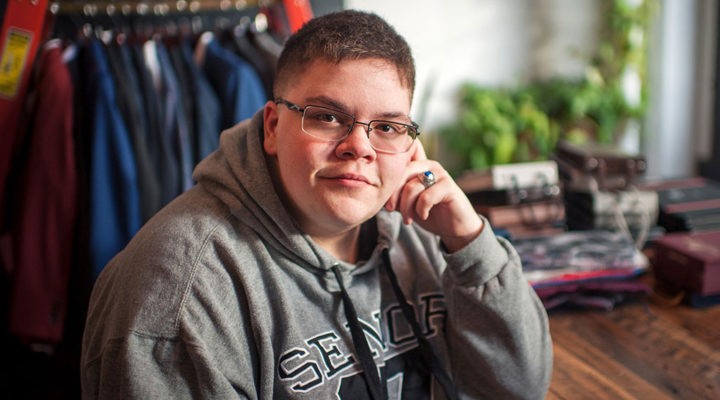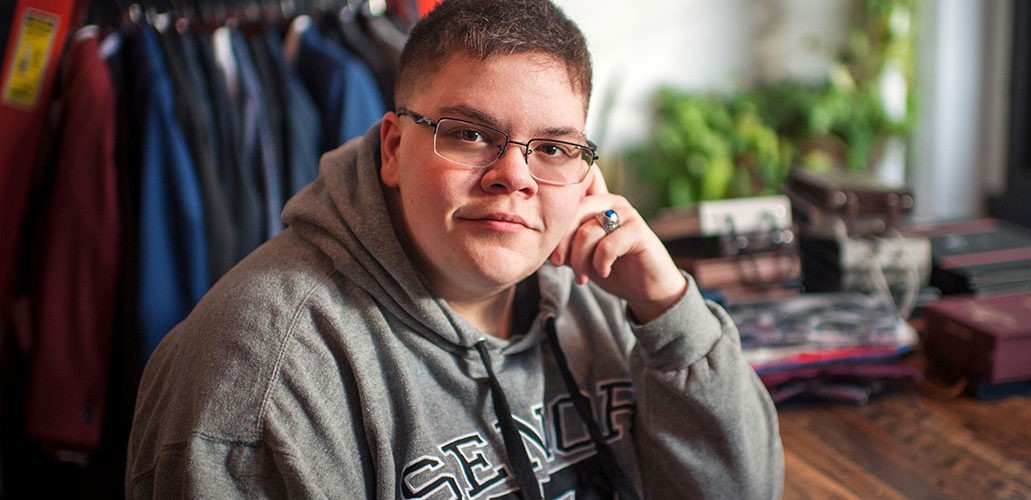Seemingly lost amid a holiday weekend, a global pandemic and a presidential election, a federal appeals court ruled Aug. 26 that federal protections banning sex discrimination in public schools include protections for transgender students.
In a 2-to-1 ruling, the United States Court of Appeal for the Fourth Circuit ruled in favor of Gavin Grimm and against the Gloucester (Va.) County School Board in a case that since 2015 has been watched as a key measure of the fight over bathroom rights of transgender students in public schools.
The ruling relied, in part, on a landmark Supreme Court ruling this summer called Bostock v. Clayton County. In that June 2020 ruling, Justice Neil Gorsuch and Chief Justice John Roberts joined the court’s liberals in a 6-to-3 ruling to declare that Title VII of the Civil Rights Act of 1964, which prohibits discrimination “on the basis of sex,” includes gay and transgender employees.
“After the Supreme Court’s recent decision in Bostock v. Clayton County, we have little difficulty holding that a bathroom policy precluding Grimm from using the boys restrooms discriminated against him ‘on the basis of sex,’” the appeals court majority wrote. “As the Supreme Court noted, ‘it is impossible to discriminate against a person for being homosexual or transgender without discriminating against that individual based on sex.’”
“It is impossible to discriminate against a person for being homosexual or transgender without discriminating against that individual based on sex.”
In summary, the appeals court majority opinion written by Judge Henry Floyd stated: “At the heart of this appeal is whether equal protection and Title IX can protect transgender students from school bathroom policies that prohibit them from affirming their gender. We join a growing consensus of courts in holding that the answer is resoundingly yes.”
Grimm is now a 20-year-old college student, but his case dates back to his high school years and has been winding through the courts ever since.
The court majority described Grimm’s experience in summary: “Grimm’s four years of high school were shaped by his fight to use the restroom that matched his consistent and persistent gender identity. In the face of adults who misgendered him and called him names, he spoke with conviction at two board meetings. The solution was apparent: allow Grimm to use the boys restrooms, as he had been doing without incident. But instead, the board implemented a policy that treated Grimm as ‘questioning’ his identity and having ‘issues,’ and it sent him to special bathrooms that might as well have said ‘Gavin’ on the sign. It did so while increasing privacy in the boys bathrooms, after which its own deposition witness could not cite a remaining privacy concern. We are left without doubt that the board acted to protect cisgender boys from Gavin’s mere presence — a special kind of discrimination against a child that he will no doubt carry with him for life.”
“We are left without doubt that the board acted to protect cisgender boys from Gavin’s mere presence.”
At birth, Grimm’s gender was assigned as female. However, later diagnosed with gender dysphoria, by the end of his freshman year, he changed his first name to Gavin and began presenting with a male identity in all aspects of life. He began his sophomore year living fully as a boy.
Initially, the school allowed him to use the boys bathrooms. But after complaints from parents, the school board adopted a policy under which students could only use restrooms matching their “biological gender.” The school built single-stall restrooms as an “alternative” for students with “gender identity issues.”
The court’s summary continues: “Grimm suffered from stigma, from urinary tract infections from bathroom avoidance, and from suicidal thoughts that led to hospitalization. Nevertheless, he persevered in his transition; he underwent chest reconstruction surgery, received a state-court order stating that he is male, and amended his birth certificate to accurately reflect his gender. But when he provided the school with his new documentation, the board refused to amend his school records.”
Grimm first sued the school district in 2015. In 2019, a district court granted him summary judgment on his claims. It awarded Grimm nominal damages, attorney’s fees, and injunctive relief from the board’s refusal to correct his school records. The school board appealed.
The case proceeded on at least two fronts, related to Title IX and the Equal Protection Clause of the Fourteenth Amendment.
The appeals court ruling — which runs 95 pages — notes in its majority statement that the school board contended it treated all students the same regardless of sex. Its policy was that “no student is permitted to use the restroom of the opposite sex.”
“No one would suppose that also providing a ‘race neutral’ bathroom option would have solved the deeply stigmatizing and discriminatory nature of racial segregation.”
“That is like saying that racially segregated bathrooms treated everyone equally, because everyone was prohibited from using the bathroom of a different race,” the majority opinion stated. “No one would suppose that also providing a ‘race neutral’ bathroom option would have solved the deeply stigmatizing and discriminatory nature of racial segregation; so too here. Rather, the board said what it meant: ‘students with gender identity issues shall be provided an alternative appropriate private facility.’”
That solution created a class of one, the court said, which stigmatized Grimm further.
At the root of the school district’s flawed reasoning, the court said, is a lack of understanding about how gender identity works. “Embedded in the board’s framing is its own bias: it believes that Grimm’s gender identity is a choice, and it privileges sex-assigned-at-birth over Grimm’s medically confirmed, persistent and consistent gender identity.”
“The board’s proposed policy was concocted amidst a flurry of emails from apparently concerned community members and adopted in the context of two heated board meetings filled with vitriolic, off-the-cuff comments, such as referring to Grimm as a ‘freak,’” the court documented. “Parents threatened to vote out the board members if they allowed Grimm to continue to use the boys restrooms.
“One would be hard-pressed to look at the record and think that the board sought to understand Grimm’s transgender status or his medical need to socially transition, as identified by his treating physician.”
Further, the court said the school board members ignored the reality of how a transgender child uses a public restroom: “by entering a stall and closing the door.”
“Grimm used the boys restrooms for seven weeks without incident. When the community became aware that he was doing so, privacy in the boys restrooms actually increased, because the board installed privacy strips and screens between the urinals,” the court noted. “We thus agree with the district court’s apt conclusion that ‘the board’s privacy argument “is based upon sheer conjecture and abstraction.”’”
Judge Paul Niemeyer wrote a dissenting opinion in the appeals case.
In siding with the school board, Niemeyer said the term “sex” in this context “must be understood as referring to the traditional biological indicators that distinguish a male from a female, not the person’s internal sense of being male or female, or their outward presentation of that internally felt sense.”
Grimm “cannot claim that he was discriminated against when he was denied access to the male restrooms because he was not, in fact, similarly situated to the biologically male students who used those restrooms,” Niemeyer added. “While he no doubt identifies as male and also has taken the first steps to transition his body, at all times relevant to the events in this case, he remained anatomically different from males.”
Related articles:
Trans 101 for churches: ways to make a difference for transgender persons
Baptist minister unlikely advocate for transgender community


